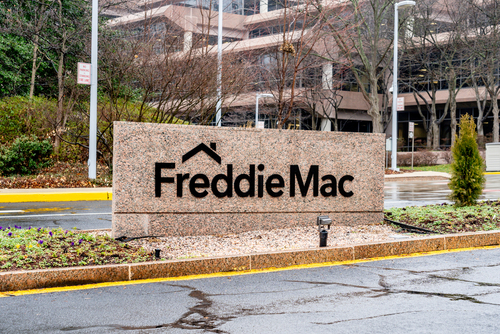The Federal Housing Finance Agency (FHFA) on June 21 issued a conditional approval for Freddie Mac to engage in a pilot program to purchase single-family closed-end second mortgages.

That conditional approval represented the first time a proposed new product from Freddie Mac or Fannie Mae was published for public comment under the process required by Congress and implemented through FHFA’s “Prior Approval for Enterprise Products” regulation that became effective in April 2023.
“The limited pilot will allow FHFA to explore whether this closed-end second mortgage product effectively advances Freddie Mac’s statutory purposes and benefits borrowers, particularly in rural and underserved communities,” FHFA Director Sandra L. Thompson said.
FHFA noted the conditional approval of the pilot includes several limitations, including a maximum volume of $2.5 billion in purchases; a maximum duration of 18 months; a maximum loan amount of $78,277; a minimum seasoning period of 24 months for the first mortgage; and eligibility only for principal/primary residences.
Thompson explained in a statement that the conditional approval was informed by comment letters FHFA received as well as other considerations, including that the product is authorized under specified sections of Freddie Mac’s Charter Act. The Charter Act permits Freddie Mac to purchase “residential mortgages that are secured by a subordinate lien against a one- to four-family residence” subject to certain conditions.
In addition, FHFA found the product to be in the public interest. Freddie Mac’s purchase of closed-end second mortgages is intended to allow borrowers to maintain their low interest rate first mortgage while accessing a portion of the equity in their homes.
Furthermore, while the volume cap ensures that any second mortgages acquired through the pilot would represent a small number of Freddie Mac’s aggregate loan acquisitions, FHFA also approved the pilot subject to additional safety considerations. Those include the expectation that the pricing of eligible second mortgages and their capital requirements will appropriately reflect the risks that they pose. That should mitigate the risk that Freddie Mac will displace activity already occurring in the home equity market, which is primarily concentrated in offerings to higher-income borrowers, as the objective is to reach borrowers who otherwise would be subject to more expensive alternatives, such as a cash-out refinance, according to Thompson’s statement.
After the pilot program concludes, FHFA will analyze the data on Freddie Mac’s purchases of second mortgages to determine whether the objectives of the pilot were met. Any increase to the volume or extension of the duration of the pilot, or a conversion of the pilot to a programmatic activity, would be treated as a new product that is subject to public notice and comment and FHFA approval, the agency said.